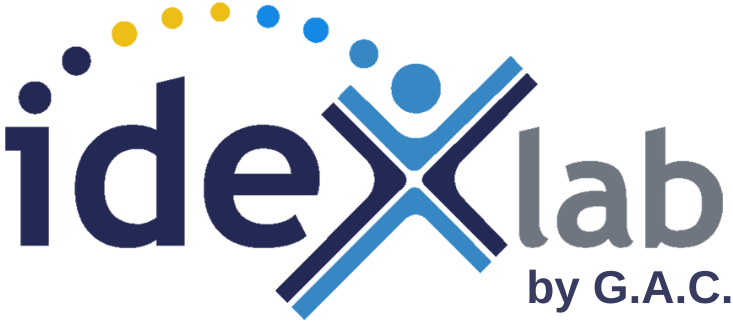What is the value of ideXlab compared to other search engines in conducting a scientific research?
Scientific research – During my PhD studies , like any R&D engineer, I would often carry out bibliographic research in order to better understand my research topic and deepen my knowledge. Among the document search tools available on the Internet, search engines (Google, Google Scholar) and scientific databases (PubMed, ScienceDirect, etc.) were my preferred tools. Given the plethora of results generated by a bibliographic search, I needed tools that were easy to use, and that allowed me to obtain reliable, relevant, and quickly analyzable results.
The use of the ideXlab platform to conduct scientific research / Thesis
After my thesis I joined ideXlab company, attracted by the perspectives of Open Innovation. What could have brought me ideXlab platform if I knew about it before ? This article provides a quick comparison between ideXlab and ‘classic’ document search tools.
Search engines and competitors exist but they’re incomplete compared to ideXlab
Upon reflection, the document search tools used during my thesis did not fully meet my expectations. It was impossible for me to carry out some helpful actions that would have allowed me to save a lot of time:
- rank research results starting with the most relevant to me
- identify new keywords to refine or expand a search
- save relevant documents in a dedicated space when doing a state-of-the-art
- share interesting documents with my thesis supervisor or colleagues
- easily get in touch with the authors of the most interesting documents
- generate an activity report
- perform collaborative work
- access other types of information (companies, startups, experts email addresses)
The platform developed by ideXlab is based on a semantic search engine using Open Data and private databases that provide access to several hundred million publications (scientific articles and patents) and several million experts and companies around the world. But above all, ideXlab platform is dedicated to Open Innovation. So, what is ideXlab’s platform relevance or usefulness for scientific research work?
A different approach with other search engines
The tools commonly used for document search, and mentioned above, are based on fairly similar principles. Google Scholar (GS), created in 2004, has some differences – but as it is used by many researchers, it is interesting to focus on it. GS scans the web using automated methods and indexes documents using academic structure tags. On GS one can find publications from major publishers, open archives, theses, books, conference documents and even unpublished documents. Upon a request, and even if the algorithms used are not public, it is known that citation data is the main means of identifying the most relevant documents. Errors and limitations have been reported as a result of the automated approach (see for example papers on possible manipulations such as “The Google Scholar experiment: How to index false papers and manipulate bibliometric indicators” by the University of Granada in 2014), but GS coverage remains very broad.
In comparison, the sources indexed by ideXlab are websites of major publishers, “Open Access” databases, patent databases, company databases. These sources have in common that they offer documents which have been read and validated by peers (peer-reviewed) or proofreaders, which gives great reliability to the research results
The ranking algorithms used by ideXlab are based on an original method: the ranking of experts (ideXlab communicates more details to its customers upon request). Overall, this method makes it possible to prioritize the results not around the documents but around the most relevant experts. Indeed, prioritizing the results around the most cited documents (as in the case of Google Scholar for example) has the disadvantage of favouring possibly old documents that have had “time” to be cited.
On the other hand, classifying around the most relevant authors makes it possible to find the most recent papers of the most relevant authors, even if they are not yet widely cited. The other advantage of proceeding in this way is to immediately identify the authors with whom you would like to start a conversation or establisha partnership with: you do not waste time contacting the author of a highly cited paper but who has only occasionally worked on your topic of interest.
Additional information to conduct scientific research properly
Of course, scientific publications are the basis of all innovation research, but they are often only a first step.
This is why ideXlab also identifies patents and companies (public and private, large and small, start-ups, SMEs, etc.) operating in a field of activity related to the query. Indeed, working on an innovation will quickly require getting information on the patents that have been filed in your area of interest, identifying the companies working in the field and which could become competitors, suppliers or partners.
Faced with this mass of knowledge that must be accumulated and ordered, it is important to guide the user through a process that will help him/her structure his/her approach.
More features to optimize your scientific research
Through its platform,designed to promote Open Innovation, ideXlab offers featuresthat are not available on traditional document search tools such as:
- innovation “workflows” dedicated to specific problematics (problem solving, state-of-the-art, technology scouting, technology transfer, supplier seaking, etc.)
- roles with specific privileges and functionalities (Seeker, Broker)
- a list of “keyword suggestions” that allows you to refine your search
- a “bibliographic” space to save and structure the results before contacting experts
- an automated mailing system that identifies the email addresses of experts and sends them emails.
Looking back, most of these features – designed to make Open Innovation – would have been of interest to my scientific research work. Expert ranking would have made it possible to prioritize query results in a very simple and effective way; keyword suggestions would have speeded up my research or opened other fields of investigation; being able to contact experts easily would have encouraged me not to wait for a conference to discuss with colleagues abroad; having a bibliographic space where I could save interesting documents from my researches would have avoided printing tons of documents that I never read; generating activity reports and being able to share projects would have made collaborative work easier and make me save a lot of time.
My PhD studies are behind me now. And each tool has a different interest and perspective that can be complementary and enriching.
On the other hand, for Open Innovation, there is one tool that I would recommend. I will let you guess which one it is :-)






